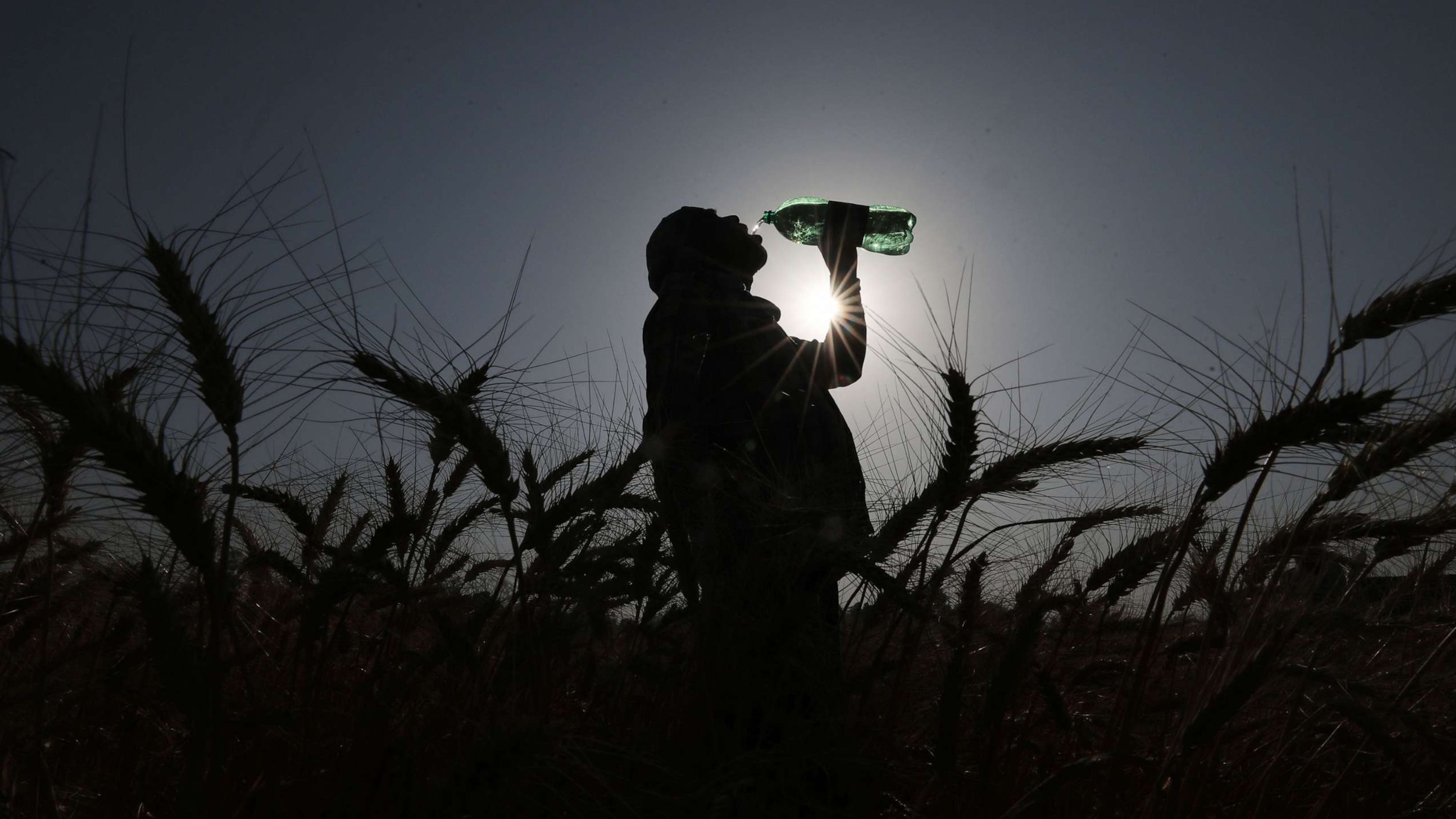Why households could experience short-term food insecurity when the weather is hot
Households may be experiencing reduced income when temperatures are high.
Researchers are beginning to understand more about how hot temperatures in the future will affect the global population.
Weeks, when temperatures are particularly hot, are associated with higher household food insecurity, which may be due to reduced household income during these periods, according to a paper published in Nature Human Behavior on Monday.
Hot periods cause people to be unable to work and earn an income, especially for outdoor workers, who then need to reduce their productivity or work hours.
"When people's income drops, they then choose to not spend as much money on food," Carolin Kroeger, an economics and development researcher at the University of Oxford and lead author of the study, told ABC News.

The researchers studied household survey data from 150 countries to examine evidence for an association between household income, food insecurity and particularly hot weeks -- defined as a week in which at least three days have temperatures that fall into the hottest 10% in the year in a particular region. The results show that there is a short-term link between hot temperatures and food insecurity and that it is mediated by reduced household income.
If a country with the population of India experienced a particularly hot week, an additional 8.07 million people would probably experience moderate-to-severe food insecurity, a model based on the data found.

A week of hot temperatures is associated with a 0.58% increase in household food insecurity, and 63.35% of this is mediated by whether respondents reported difficulties getting by on their present income. The effects are higher in countries where incomes are lower or agricultural employment is higher -- the kind of employment in which workers are "very exposed," Kroeger said.
In addition, vulnerable employees, including contributing family workers or self-employed workers, are less likely to have social safety nets and more likely to be in informal work arrangements, making food security more precarious during extreme temperatures, Kroeger said.
"If my income depends on how much I've produced in a single day, I'm going to experience a direct income shock," she said. "I find that quite interesting, because it really outlines the importance of work conditions for the link between heat income and food insecurity."

Food insecurity affects two billion people globally, and hotter temperatures can contribute to this by damaging crops and reducing harvests. When people think about the issues surrounding climate and food insecurity, they typically think about agricultural damage first, such as the state of the harvest several months down the road, Kroeger said.
"This research is saying, right now, during an immediate aftermath of the heatwave, we might be experiencing food insecurity," she said.
The findings suggest that employment may be a factor in understanding the link between heat and food insecurity and that, during hot periods, weekly income may be a key factor in determining whether a household experiences food insecurity.




